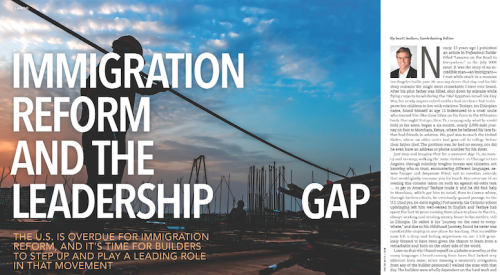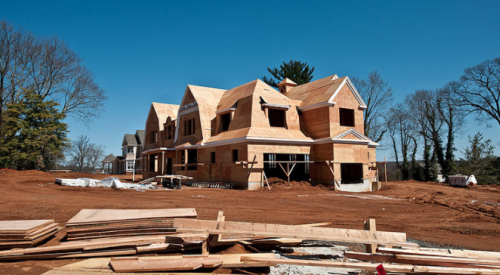|
A mid-August poll published in USA Today indicated 71 percent of respondents would accept a tax hike to keep developers away from their property. I don't know who asked the survey question, nor do I know how it was asked, but I'd like to see the details. I know I could blow huge holes in it.
Most Americans won't tolerate tax increases for schools, roads and bridges. What makes us believe our fellow citizens will subsidize the protection of land from housing developments out of their own pockets? In USA Today's survey, it was obvious that someone was looking for a response, and they got what they wanted. The response indicates there is a problem. Normal, tax-paying Americans claim they would rather spend more money in taxes than let a developer set up shop right next door.
I confess that I am generally supportive with the principle of protecting green space, wildlife habitats, forests, prairie, wetlands, etc. It's just a basic responsibility of being a human — or at least it should be. Similar to the old maxim that few companies ever got a union they didn't deserve, few industries have ever generated environmental regulations they didn't earn.
Most industries worked very hard for decades at messing up the environment before the government was pushed to enact legislation. Sure, they may get punished because of the sins of the few, but the damage the few did is mind-boggling. Industries, including home building, have no one to blame but themselves for what sometimes becomes unreasonable and even illogical regulation.
 |
We now deal with what has become the ultimate bogeyman — urban sprawl. The words are so loaded that to say you are pro-growth is tantamount to saying you are "for pollution" or "soft on crime." But growth is not the real problem for most of these people. They think that it is — and they are indeed against something — but the real problem is something else, indeed.
You see, I have determined beyond a shadow of a doubt that there is no such thing as sprawl as it is classically defined — the careless consumption of our farmland and open spaces. How do I know? One of the best things about my job is that I get to fly around the country a lot. I am lucky to get to see the American landscape in a small plane, usually no more than a couple of miles up and at speeds that let you get a feel for the land.
As I write this, I am in the middle of a journey from Detroit to the West Coast, then back via Arizona and Texas, with stops in nine major cities. I have also been back and forth to the East Coast twice and to Florida three times this year. And one thing that I, and everyone who flies with me, is amazed about is that nobody is home! That's right. There is no one out there. What you see virtually everywhere in America is vacant land. If you don't believe me, go to any suburban airport in America, buy a plane ride and tell the pilot to aim it directly away from downtown. By the time you get to 2000 feet and look out the window you will see nothing but land.
I have observed this phenomenon this year alone in the "hot" metro areas of Atlanta, Chicago, Charlotte, Phoenix, Dallas, Minneapolis, Baltimore, Las Vegas, Dallas and Sacramento, just to name a few. There is so much open land in this country that it defies comprehension. Yeah, it's getting kind of far out for commuting to the traditional work centers, but the bottom line is, there is no such thing as sprawl as it is usually understood. We have an incredible abundance of farmland and open space and will have for centuries. Most of the statistics produced on the so-called "problem" are based on nonsensical growth models.
Good development versus bad developmentDespite the complaints of builders and developers, most people are not anti-growth per se, although those that are take up a disproportionate share of newsprint and airtime. Most people accept that growth has to happen.
What a lot of people hate are many of the outcomes from suburban development as it is currently practiced. Despite notable exceptions here and there, so much of what our industry has built qualifies as ugly, and that's being kind. Our march to the hinterlands has produced a lot of ugly product arranged in ugly ways, with little regard for how people want to work, play and live.
Let me be clear. There is a big issue here and it is aggravating, time consuming and expensive. But the target has become sprawl because that's a handy wrap-up term for people who are legitimately angry, but can't quite articulate what is bothering them.
The real issue is good development versus bad development. But doing things right so often requires money, which requires density. The basic relationship between density and house prices is something, the public does not understand.
Despite that obstacle, this industry has to be much more proactive in making it easy for the citizens and members of city councils, planning commissions and zoning boards to love what we do rather than fear what we do, which is the current default standard. Don't tell me it can't be done because I have seen so many of you do it. There are incredible, wonderful examples of great development. We need to get to where the trophy-winning projects are the rule, not the exception.
The industry too often behaves as if doing things the way we've always been doing them is the only way to do things. But remember before your next township council meeting, that it is not our growth that is causing people to scream "Sprawl!" Rather, it is the way we have been growing — the look, the impact, the outcomes that detract from, rather than enhance the quality of life. But it doesn't have to be that way. There is still plenty of land, and it doesn't have to be sprawl or nothing.
|












